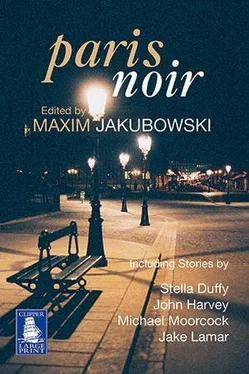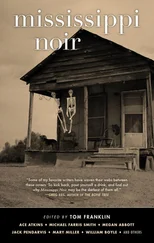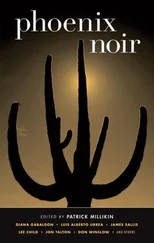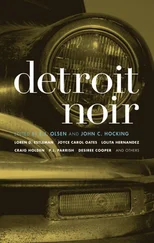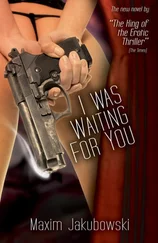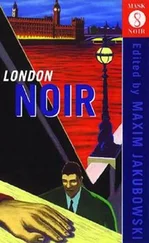Maxim Jakubowski - Paris Noir
Здесь есть возможность читать онлайн «Maxim Jakubowski - Paris Noir» весь текст электронной книги совершенно бесплатно (целиком полную версию без сокращений). В некоторых случаях можно слушать аудио, скачать через торрент в формате fb2 и присутствует краткое содержание. Жанр: Детектив, на английском языке. Описание произведения, (предисловие) а так же отзывы посетителей доступны на портале библиотеки ЛибКат.
- Название:Paris Noir
- Автор:
- Жанр:
- Год:неизвестен
- ISBN:нет данных
- Рейтинг книги:3 / 5. Голосов: 1
-
Избранное:Добавить в избранное
- Отзывы:
-
Ваша оценка:
- 60
- 1
- 2
- 3
- 4
- 5
Paris Noir: краткое содержание, описание и аннотация
Предлагаем к чтению аннотацию, описание, краткое содержание или предисловие (зависит от того, что написал сам автор книги «Paris Noir»). Если вы не нашли необходимую информацию о книге — напишите в комментариях, мы постараемся отыскать её.
Edited by Maxim Jakubowski, the stories range from quietly menacing to spectacularly violent, and include contributions from some of the most famous crime writers from both sides of the Atlantic, as well as the other side of the Channel.
Paris Noir — читать онлайн бесплатно полную книгу (весь текст) целиком
Ниже представлен текст книги, разбитый по страницам. Система сохранения места последней прочитанной страницы, позволяет с удобством читать онлайн бесплатно книгу «Paris Noir», без необходимости каждый раз заново искать на чём Вы остановились. Поставьте закладку, и сможете в любой момент перейти на страницу, на которой закончили чтение.
Интервал:
Закладка:
’What?’
’Forget me, forget what I look like. You don’t know me, you’ve never known me.’
Giuly nodded her agreement as she pulled the knitted top she had worn earlier over her head, disturbing the thousand thick dark curls. The other woman was in no rush to dress, comfortable in her white nudity. Her body was also pale, but a different sort of pallor. Giuly couldn’t quite work out the nature of the difference.
Cornelia watched her hurriedly dress.
’Go back to Rome. This never happened. It’s just Paris, Giuly. Another place.’
Back in the street, Giuly initially felt disorientated. It had all happened so quickly. She was surprised to see that she wasn’t as shocked as she should have been. It was just something that had happened. An adventure. Her first adventure since Peppino. Under her breath, she whispered his real name. The Paris night did not answer.
She checked her bag; she had enough money for a small hotel room for the night. Tomorrow, she would take the train back to Rome.
The Louvre was lit up as she walked towards the Seine, and into a harbour of darkness. At her fourth attempt, Giuly found a cheap hotel on the rue Monsieur le Prince. The room was on the fourth floor and she could barely fit into the lift. Later, she went out and had a crêpe with sugar and Grand Marnier from an all-night kiosk near the junction between the rue de l’Odéon and the boulevard Saint Germain. People were queuing outside the nearby cinemas, people mostly of her own age, no older men here. She walked towards Notre-Dame and wasted time in a bookshop, idly leafing through the new books on display. She would have dearly liked to have a coffee, but no Latin Quarter bookshops also served coffee, unlike her favourite haunt, Feltrinelli’s in Rome, where she had spent much of her teenage years. But she knew that if she walked into a café and took a table alone, someone would eventually try a pickup line and disturb her, and tonight she felt no need for further conversation. So she finally went back to her small room and slept soundly. A night without nightmares or memories.
The man in the Police du Territoire uniform handed her passport back to Cornelia. ‘I hope you enjoyed your stay, Mademoiselle?’
L’Américaine candidly smiled back at him as she made her way into the departure lounge at the airport. ‘Absolutely,’ she said.
NOCTURNE LE JEUDI by SCOTT PHILLIPS
For over two years the English bookseller has lived in a former maid’s room on the top floor of an old building on the rue Yves Toudic in the tenth arrondissement of Paris. Day and night he hears through the walls shouting matches of impressive vulgarity and ferocity; the adversaries are a mother and daughter, aged about eighty and fifty respectively. For some months after moving in he was rather afraid of these hideous creatures nesting at the end of the hallway, until the day he realised that they were the same pair of old ladies he’d met a dozen or more times on the stairs. During these encounters the old dears flash him sweet charming smiles and their voices – hoarse and masculine behind closed doors – take on in public a honeyed, almost childish tone. The daughter, slightly handicapped in a manner that remains unclear to him, squints and limps and dresses like a nun. Once they’ve disappeared into their apartment the screaming fits start up again with as much hateful fury as ever, those sweet voices deepened and amplified: ‘Get up you lazy cunt,’ the mother barks, ‘I want my dinner.’
‘Fuck off, ass pirate,’ the daughter answers.
Before moving in here he’d never heard a woman called an ass pirate before; now it’s his daily lot. Normally it’s the daughter who calls her mother this; the older woman prefers the term ‘whore’.
Tonight he thinks he heard the curt sound of a fist against flesh, which bothers him; not knowing which woman is the aggressor this time, he decides to go out. In any case he would have had to leave for dinner, since as usual he has nothing to eat in his room. He almost never slept in it in the days when he had a girlfriend; since she showed him the door six weeks ago – six weeks! – he feels the need to get out in the evenings in order not to submit to depression. He grabs a book at random before opening the door, then double-bolts it behind him.
In the corridor he runs into a young man leaving the toilet, so wasted he has to lean on the wall to remain upright. He wonders if this isn’t the owner of the burnt, twisted spoon he found on the sink the other day.
‘Evening.’
The young man gives him a benevolent smile, shrugs, manages to burble an incoherent response before heading in a leisurely way down the stairs, leaning heavily on the rail. The English bookseller waits until the other has had the time to get to the ground floor before descending himself.
The café on the street corner, as most of its business comes from students in the morning and at noon, is closed evenings; and without thinking about it he chooses its rival across the street where he takes a bar stool, orders a beer and starts reading.
After a second beer and a ham-and-cheese sandwich he shudders at the unpleasant sensation of a hand on his shoulder. Looking over his shoulder he finds at his back a neighbour from the fifth floor, a retired pharmacist whose name he can’t recall.
‘Buy you a round, young man?’
‘Sure,’ says the Englishman, wishing to remain alone but unwilling to hurt his neighbour’s feelings.
The pharmacist, still standing, orders two draughts and grabs the book without asking his permission. ‘It’s in English? What’s it about?’
‘The death of John F. Kennedy, it’s sort of a rehash of all the theories about who was behind the assassination.’
‘Oh? And who was that, do you think?’
‘The author of the book thinks it was probably the New Orleans mafia.’
‘Wrong,’ says the pharmacist with a dry smile, shaking his head.
‘Oh, well,’ says the Englishman, with no desire to pursue it further.
‘Who profited from it?’
‘I don’t know… Khruschev, Castro…?’
The pharmacist closes his eyes, as if patiently addressing a small child. ‘The Jews, naturally.’
‘Oh,’ says the younger man, whose stomach has just started hurting. He has no desire to despise his neighbour, who, pain in the ass though he may be, is alone in the world; he has let it drop that neither his ex-wife nor his daughter nor his grandchildren have any contact with him any more. ‘Is that so?’
‘You don’t believe me? John Kennedy was going to give the Arabs back the land they got stolen away from them in ‘47. The Jews didn’t have any choice. It was the Mossad that did it.’
The bookseller swallows the rest of his beer in a swig, stands up looking at his watch and feigning surprise. ‘Shit, I’m meeting someone at the Bastille in fifteen minutes, I’ve got to get going. Thanks for the beer, the next round’s on me.’
‘I’ve got my car outside, I’m free at the moment, you want me to drop you?’
Holy fucking God no. ‘That’s nice of you, I think the Métro’s quicker this time of day.’
Aware of the pharmacist’s eyes on his back, he leaves, crosses the street and walks to the place de la République, where he stops in front of the Métro entrance. Having nothing planned for the evening, and anxious to avoid the nauseating prospect of an evening listening to the neighbours, he decides to see a movie at the Bastille after all.
The film is a piece of shit, an English love-and-war story; he stays seated until the end anyway, reading the credits along with a few other disillusioned, compulsive film buffs. When the lights go back up he sneaks into the screening room next door where another film is fifteen minutes under way. That’s all right, it’s the third time he’s seen it and he knows the opening by heart.
Читать дальшеИнтервал:
Закладка:
Похожие книги на «Paris Noir»
Представляем Вашему вниманию похожие книги на «Paris Noir» списком для выбора. Мы отобрали схожую по названию и смыслу литературу в надежде предоставить читателям больше вариантов отыскать новые, интересные, ещё непрочитанные произведения.
Обсуждение, отзывы о книге «Paris Noir» и просто собственные мнения читателей. Оставьте ваши комментарии, напишите, что Вы думаете о произведении, его смысле или главных героях. Укажите что конкретно понравилось, а что нет, и почему Вы так считаете.
